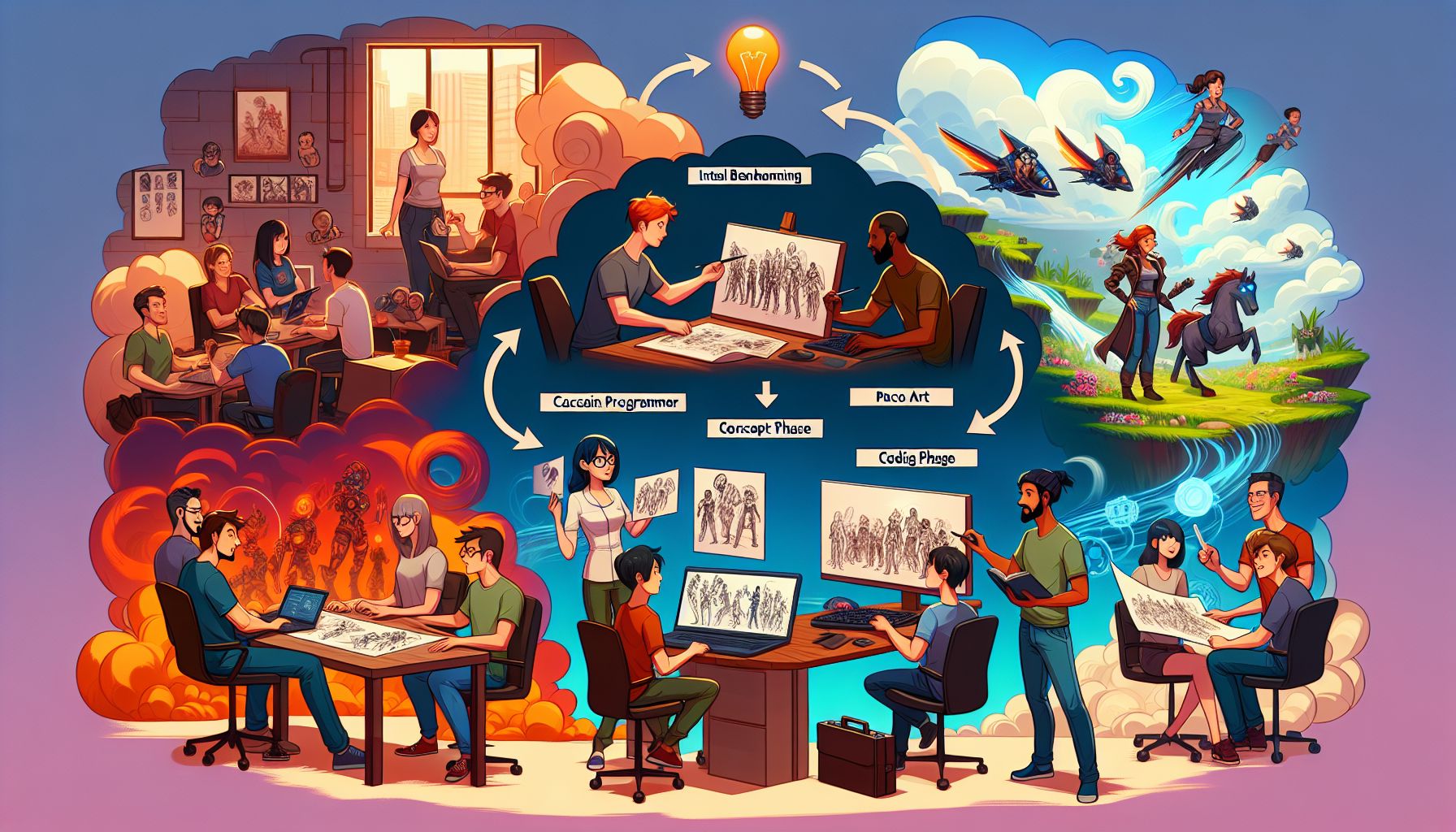In the world of video games, we are often mesmerized by the breathtaking graphics, immersive gameplay, and captivating storylines. But behind these polished experiences lies an intricate process of game development. It takes months, sometimes even years, to go from an idea to a finished product ready to hit the market. This process is known as the lifecycle of game development. In this article, we will take a deep dive into the various stages of game development and understand how a game goes from concept to launch.
Understanding Game Development
Before we start discussing the lifecycle of game development, it is essential to understand what we mean by game development. Game development is the process of creating video games for various platforms such as consoles, PCs, and mobile phones. It involves designing, programming, and producing a game from its concept stage to the final launch.
In today’s world, the gaming industry is massive, with a global market size of around $159 billion in 2020. With advancements in technology, the demand for high-quality games is on the rise, making game development a complex and competitive field.
The Lifecycle of Game Development
The lifecycle of game development can be broadly divided into six stages – concept, pre-production, production, alpha, beta, and launch. Let’s take a closer look at each of these stages and understand the processes involved.
Stage 1: Concept
The concept stage is where the idea for a game is born. It could be inspired by existing games, movies, books, or even original ideas. Project leads and game designers brainstorm ideas, create concept art, and come up with a rough game design document (GDD).
The primary goal of the concept stage is to get a clear understanding of the game’s vision and mechanics. Concepts are usually presented to stakeholders, and based on their feedback, the team decides whether to move forward with the game’s development.
Stage 2: Pre-Production
Once the concept is approved, the project moves to the pre-production stage. This is where the game’s design, mechanics, and overall vision are fleshed out in detail. The game’s scope, storyline, characters, and levels are finalized, and a more detailed GDD is created.
The pre-production stage is also where the team starts working on prototypes to get a sense of how the game will look and feel. This stage is crucial as it determines the overall direction and budget of the game. Any major changes after this stage can lead to significant delays and increased costs.
Stage 3: Production
The production stage is where the bulk of the game development takes place. This is where the actual building of the game begins, and different team members work on their specific areas of expertise.
Game programming involves writing codes and scripts to bring the game to life. Artists and animators create the game’s visuals, including character designs, environments, and special effects. Level designers work on crafting levels, while writers work on the game’s storyline and dialogues. Game producers oversee the entire development process and ensure that the project stays on track.
The production stage is known for its long hours and tight deadlines as teams try to meet release schedules. Any changes at this stage are challenging to implement and can result in delays.
Stage 4: Alpha
The alpha stage is a significant milestone in game development as it marks the completion of all major features and content in the game. It is also the first playable version of the game, but it is usually filled with bugs and glitches.
During the alpha stage, the focus is on fixing bugs, tweaking gameplay mechanics, and balancing difficulty levels. The game is also tested internally to identify and resolve any major issues.
Stage 5: Beta
The beta stage is where the game is almost complete, and the focus is on polishing and fine-tuning the game. The game is tested externally by a group of beta testers, who provide feedback on the game’s performance, gameplay, and overall experience.
The beta stage is also used to generate hype and increase marketing efforts for the game’s release. Based on the feedback, the team makes final changes before the game is ready for launch.
Stage 6: Launch
After months of hard work and dedication, the game is finally ready to launch. This is a crucial stage as it determines the game’s success or failure in the market. A lot of preparation goes into the launch stage, including marketing efforts, creating trailers, and setting up press events.
Once the game is released, the team continues to monitor its performance and addresses any issues that players may encounter through updates and patches.
Challenges in Game Development
Game development is a complex process that involves many challenges. Here are some common challenges faced by game developers during the lifecycle of game development.
Budget Constraints
Creating a game is an expensive process that requires resources, tools, and equipment. Teams may face budget constraints, which can restrict the quality and features of the game, ultimately affecting its success.
Technical Issues
With advanced game engines and complex graphics, game development comes with its share of technical issues. These can range from software bugs to compatibility issues on different platforms, causing delays and impacting the overall quality of the game.
Tight Deadlines
Game development is a time-consuming process, and meeting the release schedule is often a huge challenge. Delays can occur due to various reasons, such as workflow issues, design changes, or technical complications.
Conclusion
The journey from concept to launch in game development is a long one, filled with challenges, hard work, and dedication. It takes a team of professionals with varying skills and expertise to bring a game to life. Each stage of the game development lifecycle plays a crucial role in delivering a high-quality and successful game.
As technology continues to evolve, we can expect the game development process to become even more complex and sophisticated. With new advancements, game developers will need to stay updated and adapt to the ever-changing landscape of game development.


